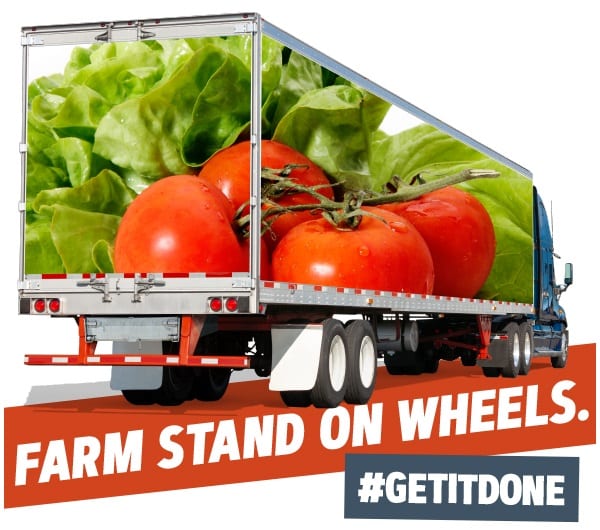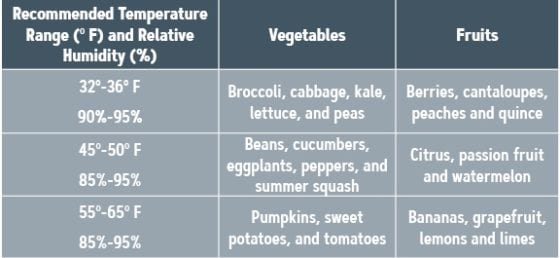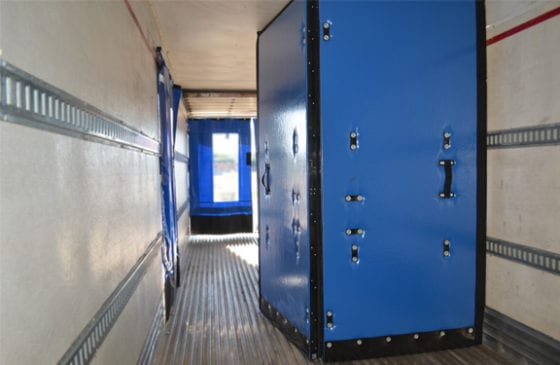
How to Keep the Farm Stand on Wheels Fresh and Safe this Summer
Who doesn’t enjoy watermelon, peaches, fresh tomatoes, and strawberries during the summer? Transporting fresh produce from the point of origin to the point of use is about speed and safety. Produce, especially, is susceptible to spoilage and microbial contamination during transport.
Maintaining the correct temperature and humidity during transport plays a key role in the quality and safety of produce. The table below, from the Produce Marketing Association (PMA), provides the recommended storage and transportation conditions for various fruits and vegetables.

Additionally, the FDA Food Safety Modernization Act (FSMA) which was implemented in 2017, focuses on protecting foods from farm to table by keeping it safe from contamination during transportation. Specifically, the rule established requirements for:
- Vehicles and transportation equipment: The design and maintenance of vehicles and transportation equipment to ensure that it does not cause the food that it transports to become unsafe. For example, they must be suitable and adequately cleanable for their intended use and capable of maintaining temperatures necessary for the safe transport of food.
- Transportation operations: The measures taken during transportation to ensure food safety, such as adequate temperature controls, preventing contamination of ready to eat food from touching raw food, protection of food from contamination by non-food items in the same load or previous load, and protection of food from cross-contact, i.e., the unintentional incorporation of a food allergen.
- Training: Training of carrier personnel in sanitary transportation practices and documentation of the training. Carriers covered by the rule are required to provide food safety training to transportation operations personnel when the carrier and shipper agree that the carrier is responsible for sanitary conditions during transport.
- Records: Maintenance of records of written procedures, agreements and training (required of carriers). The required retention time for these records depends upon the type of record and when the covered activity occurred, but does not exceed 12 months.

Refrigerated trucks and trailers are the workhorses of transporting perishable produce to grocery, convenience stores, and restaurants. Randall’s insulated bulkheads come in a variety of sizes and insulating values that separate temperature zones easily and effectively. And, in keeping with FSMA requirements, the vinyl on our bulkheads has an antimicrobial treatment to ensure food is kept contaminant-free.
Temperature swings during winter and summer months, for even a few minutes, can affect produce in transit. Keeping temperatures consistent is key. Randall curtains help contain airflow and ensure the outside elements and air temperature stay out of the refrigerated truck or trailer.
Transporting perishable produce is a numbers game – even being off by a degree or two could be a costly mistake. Being knowledge of the right transport temperature, using the proper temperature control equipment within the trailer, and following FSMA guidelines will help protect this summer’s bumper crop of fruit and vegetables.
For more information on bulkheads, side and rear door curtains, center divide systems, and insulated covers, visit www.sftruckandtrailer.net.

